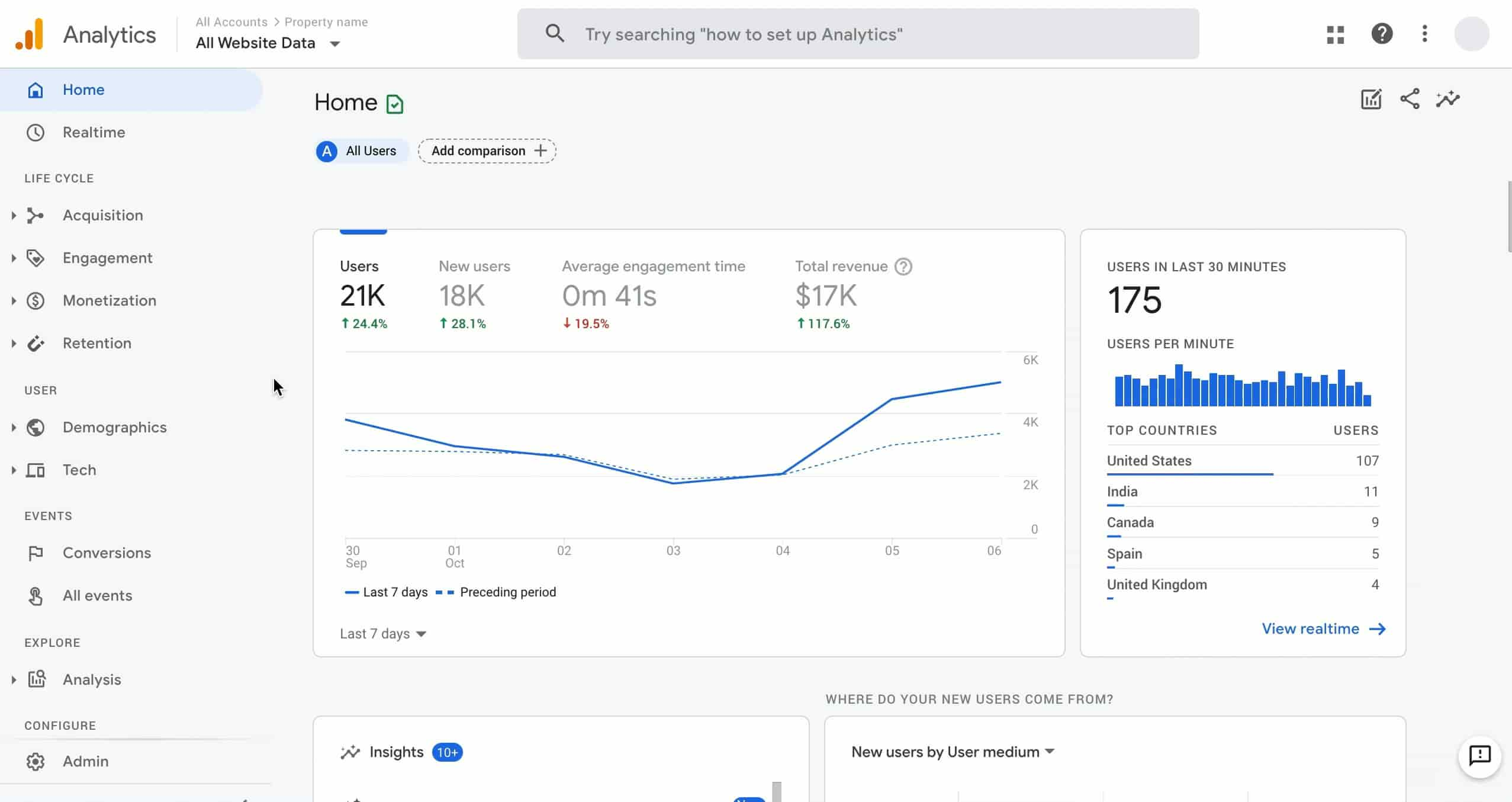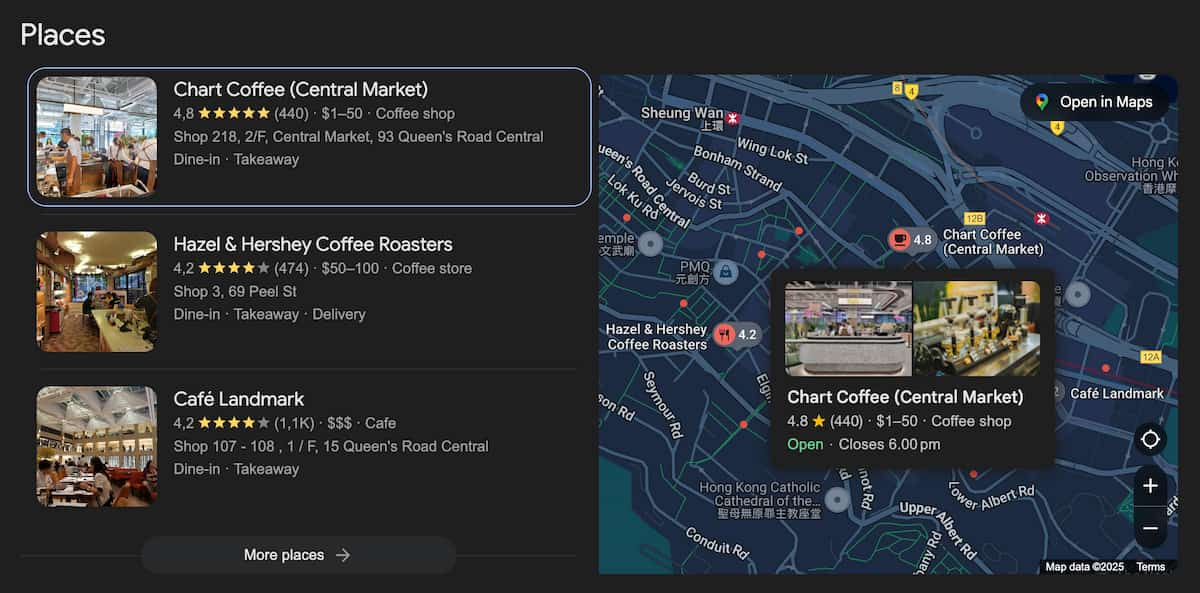What Is Digital Marketing? Practical Tips For Beginners
Want to save time?
Summarize this article in seconds with AI
In today’s world, where “everything is in your hands" with a smartphone, the consumer decision-making journey is almost entirely online. Whether it’s searching for product information, comparing prices, or making a final purchase, digital marketing has become a core strategy no brand can afford to ignore.
This article will walk you through what digital marketing is, the most common methods, and how to use these tools effectively — even if you're a complete beginner, you can get started quickly.
What is Digital Marketing?
Digital marketing is a method of promoting brands, products, or services through the internet and digital technologies. The main goal is to reach potential customers online and track and optimize performance using data.
Common forms of digital marketing include:
Search Engine Optimization (SEO)
Social Media Marketing (e.g. Facebook, Instagram, YouTube)
Content Marketing (e.g. blog articles, eBooks, videos)
Email Marketing
Paid Advertising (e.g. Google Ads, Meta Ads)
These methods can be executed individually or combined into a complete marketing funnel, guiding prospects from initial awareness all the way to final conversion.
Why Do Digital Marketing?
- Precisely target your audience: You can run ads based on gender, age, location, and interests, making sure every dollar is well spent.
- Trackable results: Unlike traditional advertising, which relies on estimated exposure, digital ads provide data like click-through rate, conversion rate, and engagement rate, allowing you to adjust strategies in real time.
- Flexible budget: You can start with as little as $50 per day. No massive investment is required, and you can scale up as needed.
- Build brand trust: Regularly sharing educational content, user reviews, or success stories helps boost brand credibility and customer loyalty.
The Current State of Digital Marketing in Hong Kong
In Hong Kong, online advertising budgets continue to grow. According to Statista, digital ad spending in Hong Kong is expected to account for 65% of the total advertising market in 2024. Consumers habitually use WhatsApp, IG, YouTube and Google search daily to discover brands and products.
Local brands are also embracing digital marketing:
Eslite Hong Kong used Facebook ads to promote the opening of its Causeway Bay branch
7-Eleven launched a limited-time “stamp card” campaign targeting youth through IG Stories
These examples show that digital marketing is no longer optional — it's essential.
Where Should Digital Marketing Beginners Start?
Here are 5 recommended starting points that allow you to begin effectively without doing everything all at once:
| Method | How to Execute |
|---|---|
| SEO (Search Ranking) | Optimize your website structure and content so users can find you on Google. |
| Facebook Ads | Set up campaigns to show your products or services to targeted interest groups. |
| Instagram Posts | Build brand style and identity by interacting with your audience through images and short videos. |
| Google Ads | Secure ad placement for search keywords to attract potential buyers with high intent. |
| Email Marketing | Send out regular promotions, educational content, or product updates to maintain relationships with existing customers. |
You don’t need to use all the tools at once. Start with methods that match your goals and resources, then scale up gradually.
Common Mistakes and Misconceptions in Digital Marketing
Common Mistakes:
Relying only on social media without having supporting website content
Running ads without installing tracking codes (e.g., UTM links)
Posting the same visuals and copy on every platform, ignoring platform-specific behavior
Debunking Common Misconceptions:
“Can’t do digital marketing with a small budget?” → You can start with a small-scale test and scale up gradually
“SEO is too difficult?” → Start with blog posts + basic keyword research
“Only young people use social media?” → In Hong Kong, the 40–60 age group is very active on Facebook
Practical Digital Marketing Workflow (3-Step Guide)
Set Your Goals and Audience
Are you trying to boost brand awareness or drive sales? Your objective will shape your strategy and channel selection.Choose the Right Channels
Is your product highly visual? Try Instagram. Want to capture search traffic? Run Google Ads or publish blog content.Continuously Optimize and Track Performance
Use tools like Google Analytics, Meta Ads reports, and UTM parameters to track top-performing content and double down on what's working.
Recommended Tools: Must-Have Digital Marketing Resources

| Tool Category | Tool Name | Function Overview |
|---|---|---|
| Data Analytics | Google Analytics 4 (GA4) | Track website traffic sources and user behavior |
| Social Media Scheduling | Buffer / Later | Schedule and automate social media posts |
| Ad Management | Meta Ads Manager | Create and optimize Facebook / IG ads |
| Keyword Research | Google Keyword Planner | Find trending search keywords |
| Design Tool | Canva | Create ad visuals, social posts, and stories |
| Social Media Analytics | Meta Insights / Instagram Insights | Track post performance including reach, engagement, and shares |
| Competitor and SEO Suite | Semrush | Offers SEO tools, ad keyword research, backlink analysis, and competitive benchmarking |
| Social Data Integration | Hootsuite / Sprout Social | Manage multiple social accounts, analyze reports, and respond to messages |
Tip #1: Boost Local SEO — Don’t Overlook Your Google Business Profile

If your business has a physical location — like a beauty salon, restaurant, or clinic — you should absolutely set up a Google Business Profile. This allows your business to appear in searches like “cafés near me” and encourages customers to leave 5-star reviews.
Key optimizations include: address, opening hours, services offered, review replies, and real photos.
Tip #2: Digital Marketing Is Not a One-Off Task — It’s a Continuous Process
Many people think that placing an ad or starting a Facebook page means they’re “doing digital marketing.” But in reality, it’s more like a marathon than a sprint. It takes ongoing testing, data analysis, and content updates to see long-term results.
Digital marketing is all about “fast testing, fast adjusting” — today’s mistake might be tomorrow’s breakthrough.
Conclusion: It’s Never Too Late to Start Digital Marketing
Whether you're just starting your brand or looking to transform and grow your business, digital marketing offers a low-barrier, flexible, and effective path to success. As long as you understand the basics and start testing on a small scale, you can gradually master this essential modern marketing skill.
 Cookie preferences
Cookie preferences








 Xiaohongshu Advertising Guide: How Can Hong Kong Brands Maximize Their Results?
Xiaohongshu Advertising Guide: How Can Hong Kong Brands Maximize Their Results?
 2x your advertising effectiveness: Master big data to optimize ad ROI
2x your advertising effectiveness: Master big data to optimize ad ROI
 Top 5 Best Ads in 2025 in Hong Kong
Top 5 Best Ads in 2025 in Hong Kong
 Hong Kong Outdoor Advertising Cost in 2026 | Adintime Report
Hong Kong Outdoor Advertising Cost in 2026 | Adintime Report
 Marketing Calendar 2026: Key Dates For Marketing Success
Marketing Calendar 2026: Key Dates For Marketing Success
 The Most Widely-Read Magazine and Newspaper in Hong Kong
The Most Widely-Read Magazine and Newspaper in Hong Kong
 Understanding YouTube Advertising Costs in 2025
Understanding YouTube Advertising Costs in 2025
 OOH /DOOH advertising in Hong Kong: Formats and Rates (2025 Update)
OOH /DOOH advertising in Hong Kong: Formats and Rates (2025 Update)
 How much does LinkedIn Advertising Cost? (2025 Update)
How much does LinkedIn Advertising Cost? (2025 Update)
 Top Social Media Platforms in Hong Kong 2025 | Usage Trends & Marketing Insights
Top Social Media Platforms in Hong Kong 2025 | Usage Trends & Marketing Insights